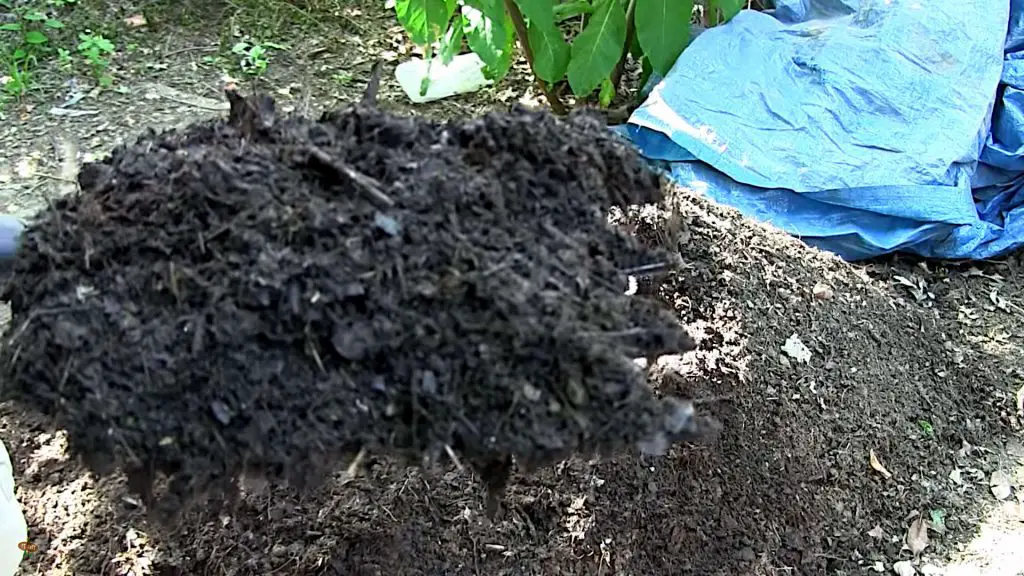Putting Vinegar in Compost | Is Vinegar Good for Soil?
There is a basic rule of thumb that anything that is edible can go in the compost. Vinegar, being a food condiment, falls into this category so yes, putting vinegar in compost is okay. The bigger question though is even though you can, should you actually put vinegar in compost?
As with most questions, the answer is slightly nuanced, there are occasions when adding vinegar to compost could be beneficial and there are circumstances where it could cause problems.
Can Vinegar Go in The Compost?
Vinegar is manufactured by diluting alcoholic beverages, such as wine, beer, and rice, with water. Vinegar, which has been left to sour, is often used to flavor and preserve food, as well as a component in condiments, food dressings, and broths.
The biggest factor to consider when putting vinegar in compost is its acidic nature. The majority of store-bought vinegar has a pH of around 2.4 as they contain about 5% acetic acid. There are some specialty vinegars that have a higher content of acetic acid, sometimes up to 7%. This pushes the pH lower making them more acidic.
Why acid can be bad for the composting process?
This is where putting vinegar in compost becomes nuanced. Composting is a process. Compost material breaks down as a result of a chemical reaction taking place between oxygen, water, carbon and nitrogen. The process causes the pile to heat up producing microbes and fungi which eat through the composting material turning it into finished compost.
If the composting pile becomes too acidic then this process can slow down or even stop completely. Besides vinegar, there are other acidic items that people compost such as citrus fruits. If you have too much acidic material you run the risk of upsetting the balance killing the microbes and slowing down the process.
If you find that this is happening to your composting pile then there are remedies. To get the decomposition process going again you can mix in some pulverized lime or wood chippings, as well as plenty of brown material.
Another problem would be if you are vermicomposting. Adding vinegar to a vermicomposting pile is likely to kill the worms and microbes thus slowing down or stopping the decomposition process.
Putting Vinegar on Finished Compost

As we have discussed putting vinegar into your compost pile is possible but it needs to be done with some caution to maintain the ph balance of your composting pile.
Finished compost though is a different scenario. Having acidic soils is usually good, in fact, for certain types of plants, acidic soil can be very beneficial. Indeed every plant will have a preferred soil pH level and when the pH level of the soil is outside of a plant’s optimum range, it may cause a variety of problems.
Why soil pH levels are important?
The pH of the soil is a significant factor in the growing capabilities of your soil. The pH level determines whether or not plant nutrients are accessible to the plants.
Often gardeners mistake yellowing between the veins of growing leaves as just a problem of iron deficiency when in fact it is far more likely to be a result of a lack of acidity in the soil. This lack of acidity prevents plants from converting iron into a form that plants can absorb. Soil with a pH of 5.5[1] or below is ideal for most plants since it allows them easy access to all of the nutrients.
But you can have soil that is too acidic. If the soil becomes too acidic you can end up poisoning plants. This is because the soil becomes over-saturated with molybdenum, a plant nutrient, which becomes toxic at elevated levels. This will effectively stunt and strangle plant growth.
Adding vinegar to finished compost?
Where you have neutral or overly alkali soil, it is likely to be beneficial to have acidic compost to correct help manage the pH levels.
There are several ways that you can make compost more acidic. Pine needles and conifer leaves are a rational way to do this but adding vinegar will have the same effect and bring the pH level down to around 4-5.
This process is not permanent as eventually, the soil will return to pH neutral. It will though help with the initial growing phase of plants and you can continue to add slightly acidic compost mulch around the plants as they grow.
If you want a self to sustain acidic soil you may want to create an environment where a soil food web is created. This would involve using soil sulfur and feeding the soil microbes directly.
Benefits of putting Vinegar in Finished Compost
Mant gardeners skip adding vinegar to compost at all and add it directly to plants and soil. The reason for this is that vinegar acts as a natural herbicide.
Household vinegar is an all-natural weed killer. It can also kill termites which may affect some plants, as explained below. However, you should be careful when spraying vinegar around certain plants as it may be harmful to some plants.
Weeds can be killed very easily with household vinegar. In addition, it can kill small insects that may harm certain plants. Nevertheless, you should use caution when applying vinegar to plants, since certain species may be harmed by it and worms could be killed off.
If the vinegar is added to finished compost it will also help with weed and insect control but some of the more severe side effects of adding vinegar directly to the soil can be mitigated.
Another issue with store-bought pickles is that they may be made with a lot of preservatives that can make them slow to break down in a compost pile. So, whether it is industrial-made vinegar, or that originating from pickles, compost it while exercising a lot of caution.
Summary | Puttin Vinegar in Compost
It may be concluded that vinegar can be composted under certain conditions and in moderation. It is particularly useful in balancing pH levels in the composting pile. However, if composting vinegar in excessive quantities you are likely to kill the microorganisms that are essential for the decomposition process.
A better option would be to add vinegar to finished compost, particularly if you are looking to reduce the pH level of the soil, as this is likely to directly benefit the and aid nutrients getting into the plants.
Commonly asked question
Can I put pickle juice in compost?
Pickle juice is essentially vinegar. As such you can compost it but do so with caution as excessively acidic composting material can slow down or even halt the decomposition process. Balance its use with brown materials and wood chips.
If vermicomposting you shouldn’t add it at all as it is likely to kill the worms in the composting pile.
